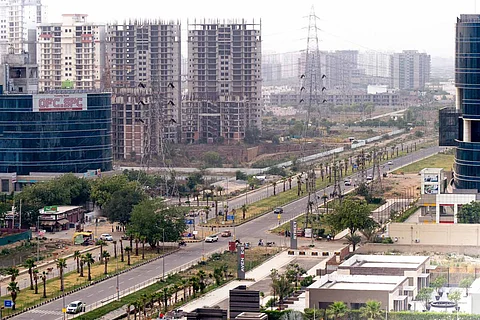

Despite the economic slowdown in India, the depreciating rupee value and stagnant property prices have made this an opportune time for Non-Resident Indians to invest in property in India. NRIs are allowed to buy and own any amount of property in India, and as per experts, real estate is among the most preferred investment options for NRIs.
According to property consultant ANAROCK’s consumer sentiment survey, Bengaluru is the top home buying destination of 31% NRI respondents, followed by Hyderabad, Pune, Mumbai and Delhi-NCR, Shajai Jacob, CEO – GCC (Middle East) ANAROCK Property Consultants says.
Here is everything an NRI needs to know to buy property in India
As per current norms in India, NRIs can purchase any number of residential or commercial properties in the country. However, an NRI cannot purchase any agricultural land or plantation property in India.
Shajai says that in order to purchase a farmhouse or plantation, the person will have to approach the RBI for a specific permission, and the RBI will consider this on a case-by-case basis.
“Real estate transactions by NRIs fall under the purview of the Foreign Exchange Management Act (FEMA) and it empowers the Reserve Bank of India to frame necessary regulations for sale and purchase of properties by NRIs. The guidelines of FEMA apply to the type of purchase and sale of property by an NRI, payment of property acquisition as well as repatriation of sale proceeds of the property,” he adds.
Since online registration is yet to gain momentum in India, NRIs can get their property registered in their name by giving the power of attorney (PoA) to a person residing in India. The PoA holder signs on their behalf by producing a copy of the PoA to the appropriate authorities.
With the PoA, they are bestowing upon their chosen person (usually a family member) to undertake all necessary formalities, from execution of agreement of sale, to registration, to possession, and also execute all deeds, mortgages, contracts, lease etc.
“NRIs should properly measure their options and only entrust someone reliable with this responsibility. NRIs can also seek home loans through a PoA holder and documents can be signed on their behalf while investing in property,” Shajaj says.
An NRI is entitled to pay all taxes such as stamp duty, registration fee, GST (for under construction), post purchase annual property taxes etc like any other Indian resident while buying property in any part of the country.
NRIs can also invest and earn rental income from properties in India. However, NRIs will also have to pay taxes on income they earn through rent. Shajaj says that after deducting 30% TDS (tax deducted at source), the remaining amount can also be repatriated under FEMA rules.
Similarly, proceeds earned via sale of immovable property can also be repatriated after deduction of between 20% to 30% TDS depending on its nature – long-term or short-term capital gains.
Just like any resident Indian, NRIs are also eligible to avail home loans for as many properties. There is no cap on the number of properties for which an NRI can avail home loan, but the repayment options are weighed and measured by most banks concerned. In India, most banks and non-banking financial institutions offer home loans to NRIs. However, the tenure of the home loan may vary, and the rate of interest is usually higher for NRIs.
Shajaj says that NRIs can invest in real estate in India and can still manage to save tax. They can claim tax deductions on home loans on both principal repayment and interest as well as other tax deductions such as stamp duty and registration charges etc.
“Depreciating rupee value and stagnant property prices presents an opportune time for NRIs to invest in India. At the same time, game-changing policies like RERA and GST have further streamlined the property-buying process for NRIs and thus boosted their confidence in Indian realty,” Shajaj says.